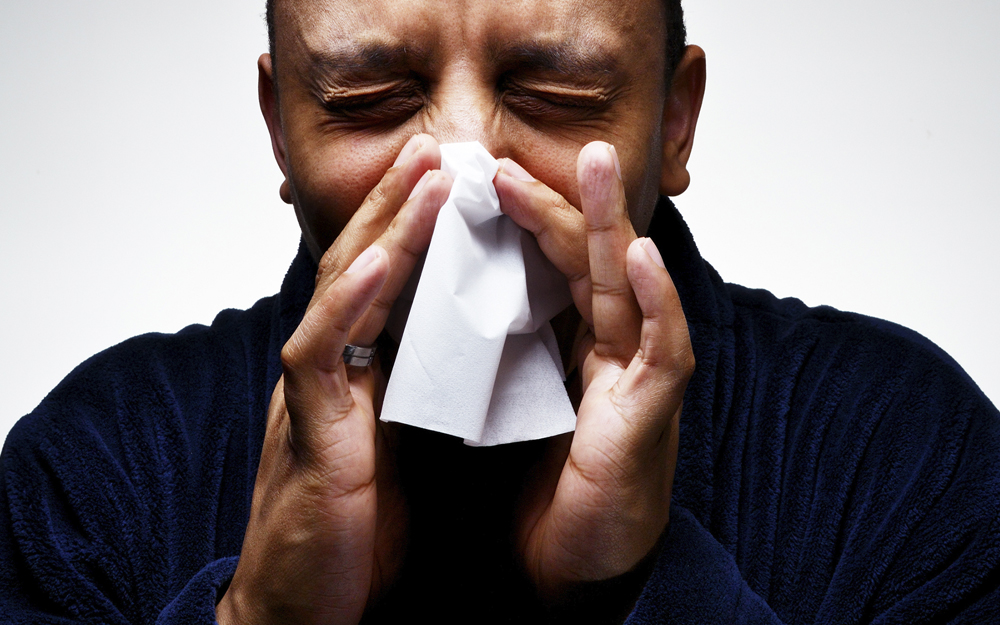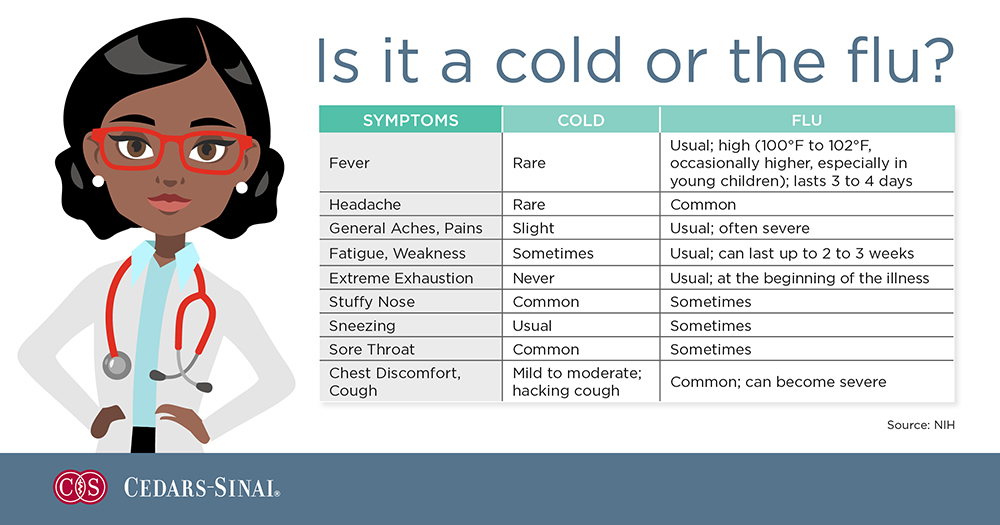Cold vs. Flu Symptoms
Date
October 15, 2017
Credits

Date
October 15, 2017
Credits
Medical providers featured in this article
In Brief
{{cta-block}}
You've got the sniffles, you're tired, and you can't stop sneezing. Is it a common cold or the dreaded flu?
"Because the common cold and the flu have overlapping symptoms, it's easy to mistake one for the other," says Dr. Victoria Kang, urgent care physician at Cedars-Sinai.
Cold Symptoms
A cold is a viral upper respiratory tract infection that typically affects the nasal part of the respiratory system. The infection is usually mild and goes away without treatment. Symptoms may include a runny nose, headache, and sneezing. About half of patients can also experience a cough or sore throat. A cough that persists after other cold symptoms have cleared up may indicate bronchitis, sometimes called a chest cold, which is an inflammation of the airways in the lungs.
Colds are most common in winter and spring months, and usually last 7-10 days. You can help prevent a cold with frequent handwashing and by avoiding contact with people who have a cold.
Not a cold? Read, Why Am I Sneezing?
Flu Symptoms
The flu is caused by the influenza virus and lasts about 5-7 days. Symptoms of seasonal flu typically include fever, fatigue, headache, and muscle aches. The best way to avoid getting the flu is by getting a flu shot, which takes about 2 weeks after injection to start protecting you from the flu virus.
"Get your flu vaccine before the flu season starts," says Dr. Kang. "This not only reduces your risk of the flu, it also protects more vulnerable people around you who may not have good immunity, such as the elderly, people with chronic illnesses, or small children."
Who should get a flu shot? According to Dr. Jonathan Grein, Cedars-Sinai’s director of hospital epidemiology, everyone 6 months or older should get an annual flu shot before flu season starts.
Do I Have a Cold or the Flu?
Still unsure which you might be experiencing? Use this symptom checker to help determine if you have a cold or the flu:

Should I go to the doctor?
Colds and flu are not treated with antibiotics and rarely require a trip to the doctor. While the flu can occasionally be life-threatening for those with reduced immunity, for most people the best remedy for a speedy recovery from a cold or flu is usually rest and plenty of fluids.
Dr. Kang recommends seeking medical attention if you experience shortness of breath or trouble breathing, pain or pressure in the chest or stomach, dizziness when standing, decreased urination, confusion, inability to keep fluids down, or a fever lasting more than 48 hours. If you experience any of these symptoms, visit your primary care doctor or urgent care as soon as possible.
Cedars-Sinai Urgent Care Locations
{{column-start}}
Beverly Hills
8767 Wilshire Blvd - 2nd Floor
Beverly Hills, CA 90211
310-248-7000
{{column-end}}
{{column-start}}
Culver City
10100 Culver Blvd.
Culver City, CA 90232
310-423-3333
{{column-end}}
{{column-start}}
Playa Vista
12746 W. Jefferson Blvd.
Playa Vista, CA 90094
424-315-2220
{{column-end}}





